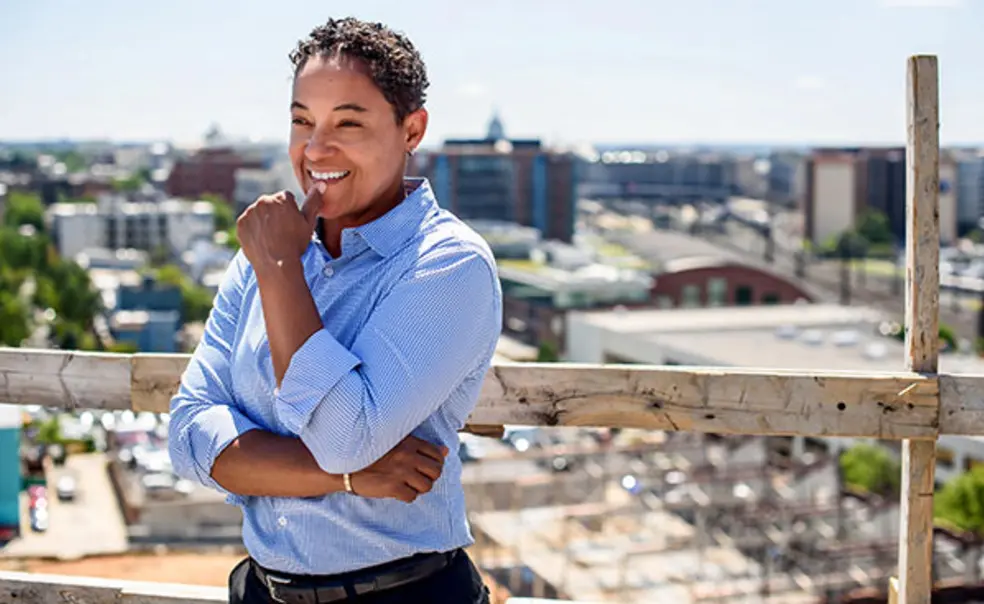Angelique Brunner *97 Spurs Development and Revitalization in D.C.
Unlike many real estate financiers, Angelique Brunner *97 didn’t head to Wall Street when she graduated from college. Instead, she joined AmeriCorps in South Providence, R.I., an experience that shaped her vision for neighborhood revitalization.
“What I learned in AmeriCorps in South Providence is that you could have all the right intentions and the right political will, [but] if you didn’t have the capital, you couldn’t get things done. And it wasn’t public-sector capital — it was private-sector capital,” she says.
Inspired by her experience, Brunner pursued a masters of public affairs with a certificate in urban planning from the Woodrow Wilson School. She then worked in urban development at Neighborhood Revitalization Corporation, Neighborhood Development Company, and Fannie Mae.
As she worked in urban redevelopment, Brunner became “morally distracted” by Washington D.C.’s condition, where houses in deteriorating neighborhoods sold for as little as a dollar. “Here we were in the early 2000s, and people still wanted to use the MLK riots as an excuse. And I wasn’t interested in that story,” she says.
Brunner founded EB5 capital in 2008 as a result of that moral distraction. The firm attracts investment to deteriorated neighborhoods through the EB-5 visa program, which provides a pathway to permanent residency for those who invest in capital projects in the United States.
Since 2008, Brunner’s company has created more than 1,300 housing units and 200 hotel rooms in Washington, D.C.’s NoMa (north of Massachusetts Avenue) neighborhood. In the midst of the 2008 financial crisis, EB5 capital broke ground on projects in NoMa without relying on taxpayer funding.
The Bureau of Alcohol, Tobacco, and Firearms opened an office in NoMa shortly before EB5 invested in the neighborhood. The result was a 40,000-person daytime population that did not live in the area.
“That’s where cities like the District suffer. That means they’re not spending money on restaurants and not spending money on housing,” Brunner says. “We’ve really committed to all the asset classes needed to rebuild that neighborhood — from retail to housing to hotels.”
While EB5’s projects have created more than 6,000 American jobs, some have criticized the creation of new housing and hotels for causing gentrification. But Brunner is proud that EB5’s projects caused no displacement, and she also contends that increasing housing supply is the best way to lower rents.
“We’re very mindful. There’s a reason that no project has gone through our underwriting process that has displacement,” she explains. “If you want lower rents, you need to have more housing. You have to have more supply if you want to lower prices.”
Reflecting on her time at the Wilson School, Brunner credits Princeton’s mission and values for helping shape her vision for EB5 capital. She received a 2019 Distinguished Alumni Award from the Association of Black Princeton Alumni.
“Princeton’s particularly good about creating good citizens that are good citizens whether they are in government service or not,” she says. “I really benefitted from that culture. It’s allowed me to build a company that’s had an incredible impact.”












No responses yet